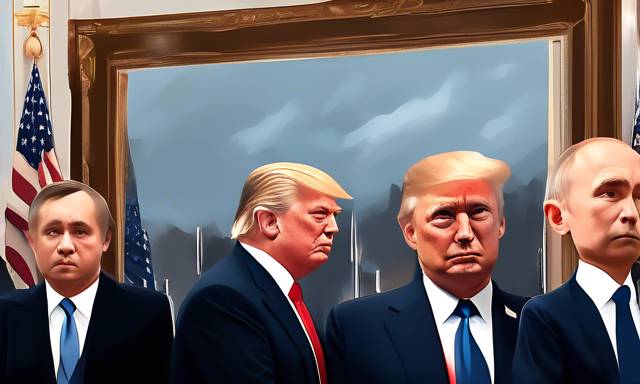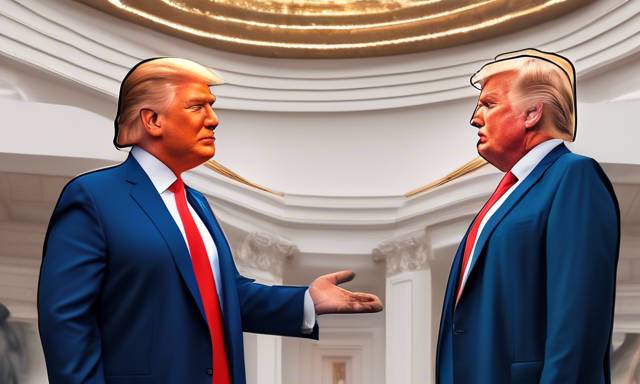Donald Trump Discusses Economic Strategies and Foreign Relations in Latest Interview 🤔💼
In a recent conversation, Donald Trump, the Republican presidential hopeful, reiterated his vision for revitalizing the American economy through significant tariff increases. This discussion took place in an interview conducted by a prominent editor, where Trump outlined his strategies to enhance U.S. competitiveness and influence in global markets. He emphasized a belief that the United States has long been disadvantaged by other nations and that his approach will reverse this trend.
Trump declared, “We are committed to bringing businesses back to our homeland. The term ‘tariff’ resonates with me; it holds immense potential for protecting U.S. jobs and invigorating our industrial base.” He mentioned his prior cordial relationships with foreign leaders, including Xi Jinping of China, Vladimir Putin of Russia, and Kim Jong-un of North Korea, asserting that diplomacy is crucial to balancing economic power.
Potential Tariff Implications and Economic Outlook 📈
Industry experts shared insights on Trump’s economic forecasts, pondering the potential implications of his tariff plans. Critics warn that imposing significant tariffs can lead to adverse outcomes for the U.S. economy, including heightened inflation and stifled growth. Market analysts highlighted that while Trump’s message of restoring American jobs resonates with voters, the economic landscape remains uncertain. The dichotomy of fostering growth through tariffs while also maintaining a stable economy raises questions about long-term benefits for American workers.
In discussing competitive relations, Trump made it clear that he views every nation as a rival, whether allies or adversaries, claiming that partners like the EU have also gained at the United States’ expense. As the election approaches, this stance signals a potentially more aggressive foreign policy should he regain the presidency.
Election Insights and Voter Sentiment 📊
Trump’s focus on economic issues reflects the tight race in key swing states such as Pennsylvania. Polls indicate a close contest, with both candidates in a dead heat, raising questions about voter intent. Analysts conveyed that undecided voters could significantly influence the outcome, underscoring the importance of economic discourse during the election cycle.
When examining Trump’s prospective trade and tariff policies, analysts pointed out that the economic environment is crucial for financial markets. Potential outcomes depend on how Trump’s proposed changes, including tax cuts and immigration restrictions, influence inflationary pressures as the U.S. moves into 2025.
Federal Reserve Relations and Leadership Opinions 💬
Trump addressed the Federal Reserve, hinting at possible changes in leadership if he returns to office. He expressed a desire for a Fed that aligns closely with presidential interests. “It’s crucial for the U.S. President to engage with the Fed Chair,” Trump stated, signaling his intention to exert influence over monetary policy. He recalled past criticisms of current Fed Chair Jay Powell’s decisions during his administration, illustrating a desire for a more cohesive approach between political and economic spheres.
Critics caution that Trump’s belief in a President’s direct involvement with the Fed could undermine its independence, which is essential for maintaining market stability. The backdrop of his tenure suggests a continued push for policies that could intertwine executive preferences with central bank operations.
Hot Take: The Road Ahead for Trump’s Economic Policies 🔍✍️
As the election nears, the implications of Trump’s tariff strategies and foreign policy views resonate with many American voters. His commitment to reshaping the economic landscape through direct intervention poses a complex challenge. For the financial markets and the broader economy, the prospect of significant changes looms large, potentially reshaping interactions within global trade networks and impacting everyday consumers. Observers will closely monitor how these plans evolve and the tangible effects they may have following the elections this year.





 By
By

 By
By

 By
By